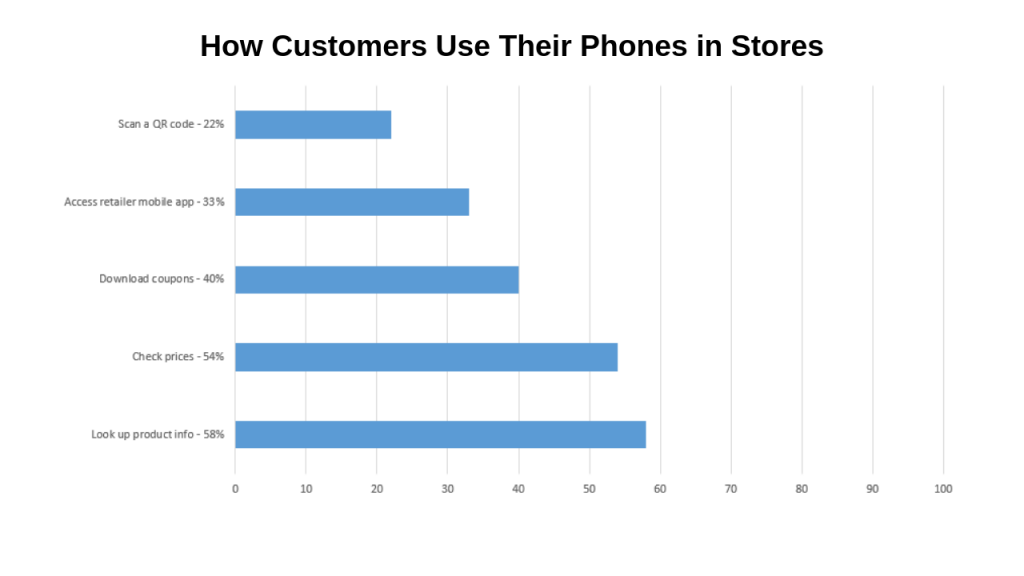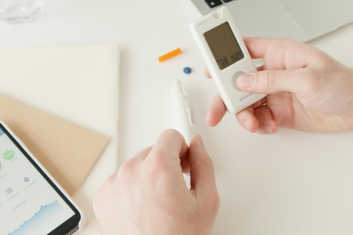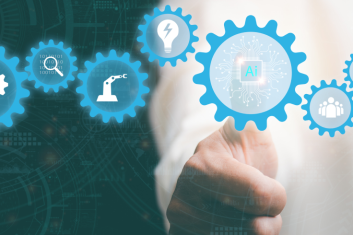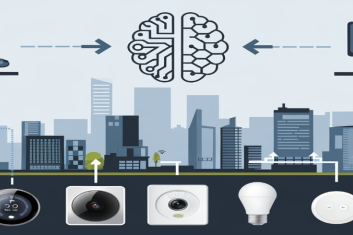Usually, when we refer to the Internet of Things technology, we talk about its perks for big industries or personal living spaces. IoT remains an unknown to many regular business customers, serving for the most part in “background activities” such as security and infrastructure.
What if there were a piece of IoT tech that could help even small businesses serve their customers better?
What Is a Beacon?
Basically, a beacon is a small Bluetooth transmitter. The device incorporates a CPU, radio and a small coin-cell battery. It can detect nearby Bluetooth devices and transmit signals with various kinds of content. For instance, when a customer enters a shop, a promotion gets pushed to their smartphone.
The beacon sends a signal via Bluetooth Low Energy, which is received by nearby mobile devices.
Beacons come in various shapes and sizes, divided into the following categories:
- standard beacons — devices the size of a Wi-Fi router;
- small beacons — portable devices the size of a credit card;
- USB-beacons — compact devices, which do not have built-in batteries but can be deployed through a USB port;
- parent beacons — devices that can track other beacons, receive and process signals, and store the data gathered by beacons in the cloud;
Beacons help business owners gather useful insights about their customers and provide a personalized experience. For example, if the customer would like to know how to navigate the shopping mall, a device can detect the customer’s location and push a map to his or her smartphone, giving additional information on places of interest along the way.
Beacons help get the product in front of the customers’ eyes, ensuring that they will interact with it. The technology provides contextual information and simplifies the retailing experience.
A Finnish retailing chain, K-supermarket, that installed beacons in its stores found that 25% of customers who have come across beacons bought the advertised product.
How Do Beacons Work?
Each beacon transmits a signal — containing a unique ID number — that helps the data center figure out to which device the content should be pushed.
The data center is usually a Content Management System. Such beacon technology applications can be developed to suit whatever the needs of a particular business are.
The CMS contains all the content that is pushed to the mobile devices by beacons. It allows for that content to be changed at any time since it is stored on the cloud and not in the mobile app on customers’ smartphones.
The protocol the beacons use to communicate, developed by Apple, is called iBeacon, and it makes transmitting small amounts of data possible. Google has developed an alternative to iBeacon called Eddystone.
These devices use BLE to communicate. BLE stands for Bluetooth Low Energy — a power-efficient variation of the Bluetooth wireless standard. Most modern portable tech items, including smartphones, tablets, and smartwatches have BLE chips. The technology lets beacons work for 18-24 months on a coin-cell battery.
The last element in the chain is the mobile device, which receives content from the beacon. The content comes in the form of a notification. When customers click on it, they will be directed into the retailer’s application. If the device doesn’t have the app installed, the customer can still view the content on the web.
The beacon detects a mobile device and sends a promotional notification. The customer clicks on the notification to get more info.
The interaction goes in the following order:
- The beacon recognizes the smartphone or tablet;
- The beacon sends an ID number to the mobile app in the form of notification — it may be a promotional offering;
- Upon the customer clicking the notification, the content is pushed to the smartphone from the Content Management System.
Where Can the Beacon Platform Be Applied?
Beacons are designed to improve the customer’s retail experience in brick-and-mortar shops. As RetailDrive states, 60 percent of offline shoppers use their mobile phones to look up the product while in the store:
Source: RetailDive
Since people are already using their devices, the beacons can help them see the stuff they are looking for. The technology is already used for:
Tracking. The beacon platform can be used for locating items in a store or warehouse. It makes consultants’ job of checking the availability of products much easier.
Artyom Shukanov
Senior/Lead Software Engineer
at HQSoftwareWe have developed a system for tracking vehicles’ locations in the warehouses. Each vehicle had its own BLE-beacon installed, which communicated with Raspberry Pi detectors on the walls. The data from the detectors was aggregated and analyzed by neuronet, giving us the possibility of locating each vehicle separately.
Navigation. Beacons make it easier for customers to find their way around a big store, a hotel, a terminal, or a shopping mall. Upon entering, the beacon locates the user and offers to provide a map for easier navigation. Users can then take advantage of an interactive map with their location already identified.
Interaction. The devices can detect users’ devices when they are close by. This can be usefully employed in multiple ways.
For instance, at a gym, people can “clock in” and “clock out” of a workout session simply by passing a beacon located near the gym entrance.
When customers approach the counter at a coffee shop, they can be offered a loyalty card. When they purchase a drink, it gets recorded on the loyalty card — and the customer is rewarded with a free coffee after a certain number of visits.
A beacon that’s located on a product display can push information to the customer’s smartphone when he or she gets close to the display. For instance, if a customer starts perusing jeans in a clothing store, the beacon can push details on available sizes and similar styles.
Security. By tracking movement, beacon devices can ensure that customers do not enter places they are not supposed to. At workplaces, beacons can track safety issues and send notifications accordingly.
Analysis. The beacon technology solution is one more information generator in the IoT infrastructure. The data beacons can help gather can be used for analyzing and improving the system’s performance.
The system can analyze which beacons are triggered more and which content is requested or used the most. Using that data, business owners will be able to provide the most relevant info and optimize workflows.
Want to build a beacon-enabled software solution?
We are ready to share our expertise to provide the best-performing solution.
Aleksandra Golik
Head of Sales
at HQSoftware
Summing Up
Beacons bring the power of the Internet of Things to regular consumers. They can make navigating and browsing stores and other places of interest easier. They allow business owners to target customers with personalized products.
Though there are various types of beacons on the market, they all do pretty much the same thing: locate nearby mobile devices and push content to them.
Beacon technology solutions can be used for many purposes: to track the location of people and goods in stores, to help customers navigate the public place, and to interact with objects within the public space. Beacons can also assist in making the area more secure and provide a ton of information for analysis.

HQSoftware Founder
Having founded the company in 2001, uses his broad knowledge to drive the company forward. Ready to share his wisdom on software development and technology insights
Related Posts
View All
We are open to seeing your business needs and determining the best solution. Complete this form, and receive a free personalized proposal from your dedicated manager.

Sergei Vardomatski
Founder








